Understanding Phlegm Through Traditional Chinese Medicine
Traditional Chinese Medicine offers a unique perspective on health and disease, one that diverges significantly from Western approaches. At Sacred Plant Co, we've studied how TCM addresses one of the most misunderstood concepts in wellness: phlegm. While many associate phlegm solely with respiratory congestion, TCM reveals a far more nuanced understanding of this pathological substance and its effects throughout the body.
What Phlegm Means in Traditional Chinese Medicine
In TCM, phlegm represents more than the sticky substance produced during a cold. We understand phlegm as a pathological byproduct arising from deeper imbalances within the body, often linked to Spleen dysfunction and the accumulation of dampness. This concept shapes how we approach wellness from a holistic perspective.
The Two Forms of Phlegm
TCM practitioners categorize phlegm into two distinct types:
Visible Phlegm (You Xing Zhi Tan): This is the more commonly recognized form, such as the mucus found in the respiratory system during illnesses like bronchitis or pneumonia. When you cough up thick, sticky mucus, you're experiencing visible phlegm.
Invisible Phlegm (Wu Xing Zhi Tan): This form is more insidious and can manifest in various ways, including as lumps, nodules, or even mental disturbances like confusion or depression. According to TCM wisdom, invisible phlegm affects the body's organs and meridians without producing obvious mucus, yet its effects are felt throughout the entire system.

Key Insight: The ancient TCM saying goes, "Strange afflictions are usually phlegm." This reflects how invisible phlegm can create unexpected symptoms ranging from dizziness and mental fog to persistent fatigue and unexplained lumps.
How Phlegm Forms: The Spleen Connection
Phlegm originates from dysfunction in the body's fluids, often due to an imbalance in the Spleen's ability to transform and transport these fluids. In TCM, the Spleen (paired with the Stomach) serves as the foundation of "acquired constitution" because it produces Qi, Blood, and body fluids from the food we consume.
When Spleen Qi becomes weak, it fails to properly manage the body's fluids. This leads to dampness accumulation, which eventually condenses into phlegm. The transformation looks like this:
Weak Spleen Function → Impaired Fluid Metabolism → Dampness Accumulation → Phlegm Formation
What Causes Phlegm Accumulation
At Sacred Plant Co, we emphasize understanding root causes rather than just managing symptoms. Several lifestyle and environmental factors contribute to phlegm formation:
Dietary Factors
Foods That Generate Dampness: Overconsumption of fatty, greasy, or cold foods impairs the Spleen's function. Dairy products, fried foods, processed sugars, and excessive raw or cold foods create dampness in the digestive system, which the weakened Spleen cannot properly transform.
Overeating: When we eat beyond our body's capacity to digest, food stagnation occurs. This stagnation interferes with the Spleen's transformative abilities, creating the perfect environment for dampness and phlegm to develop.
Emotional Imbalances
Emotions directly affect organ systems in TCM. Chronic worry, anxiety, and overthinking weaken the Spleen, contributing to phlegm production. Additionally, suppressed anxiety leads to Liver Qi Stagnation, which further impedes the Spleen's function and promotes dampness accumulation.
Environmental Conditions
Living in damp or humid environments, wearing wet clothes, or working in water-related occupations can introduce external dampness into the body. This external dampness combines with internal weakness to create or worsen phlegm conditions.
How Phlegm Manifests Throughout the Body
Phlegm affects different areas depending on where it lodges:
In the Lungs: Phlegm causes coughing, wheezing, a sensation of fullness in the chest, and difficulty breathing. This is the most recognized form of phlegm manifestation.
In the Stomach: It may lead to nausea, vomiting, a feeling of heaviness in the body, and digestive disturbances including poor appetite and bloating.
In the Head: Phlegm misting the mind causes dizziness, foggy thinking, mental cloudiness often described as "cotton wool in the head," and can contribute to anxiety, depression, and obsessive-compulsive features.
In the Meridians: Phlegm can obstruct the flow of Qi and Blood through the body's energy channels, causing pain, stiffness, lumps, or nodules.
Traditional Chinese Medicine Approaches to Treating Phlegm
We approach phlegm treatment holistically, addressing both the root cause (often Spleen Qi deficiency) and the immediate symptoms. This involves herbal remedies, dietary adjustments, acupuncture, and lifestyle modifications working together to restore balance.
Herbal Remedies for Transforming Phlegm
Various herbs play a vital role in transforming phlegm and supporting the Spleen's function. At Sacred Plant Co, we offer premium-quality herbs traditionally used in TCM for managing phlegm conditions:
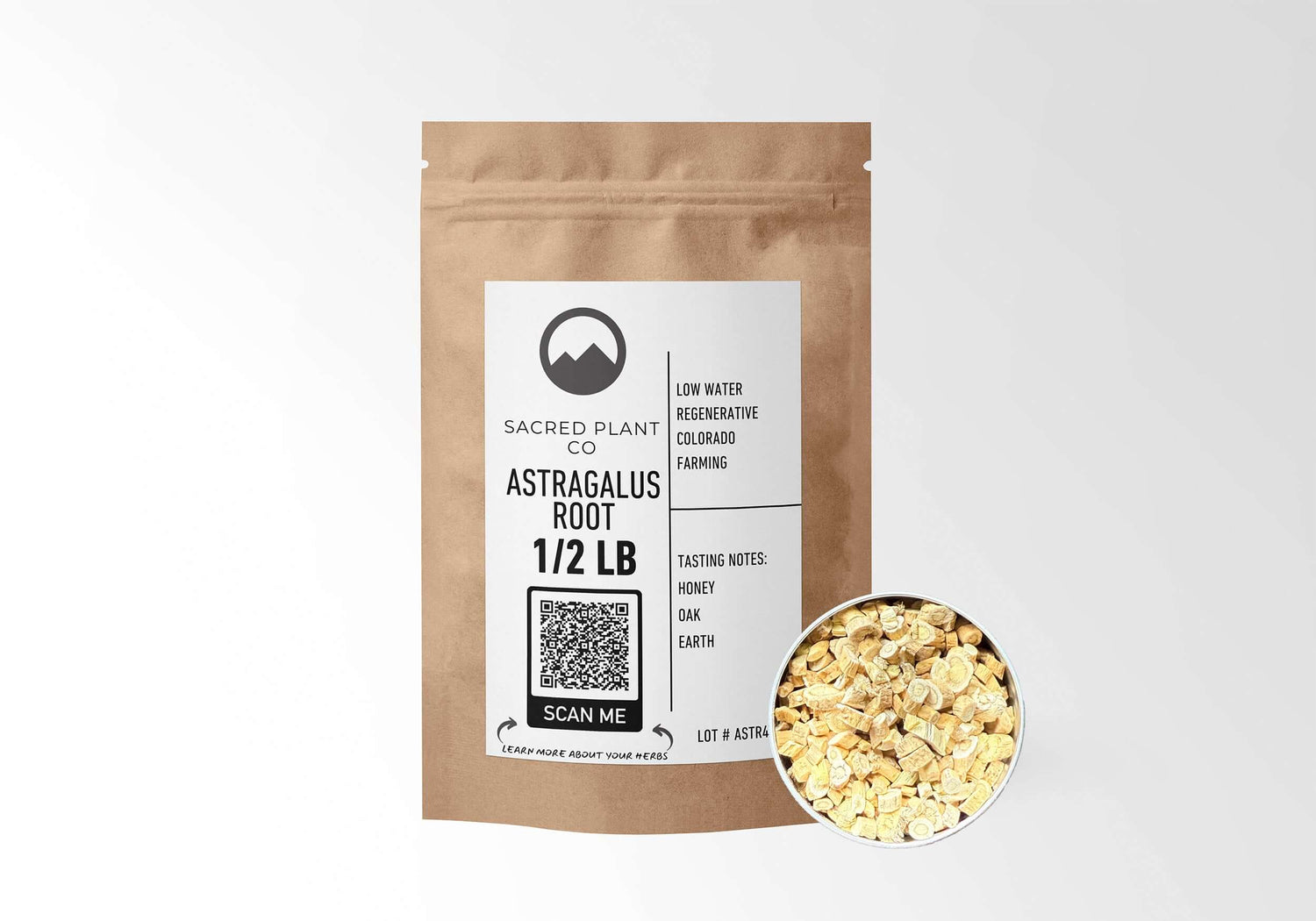
Astragalus Root (Huang Qi)
Known for its immune-boosting and Spleen-strengthening properties, Astragalus enhances the body's ability to metabolize fluids effectively. In TCM, it's classified as a Qi tonic that primarily supports the Lungs and Spleen. Recent studies confirm that Astragalus polysaccharides improve intestinal immune function and strengthen Spleen Qi, making it essential for addressing the root cause of phlegm formation.
Starting at $13.89
Shop Astragalus Root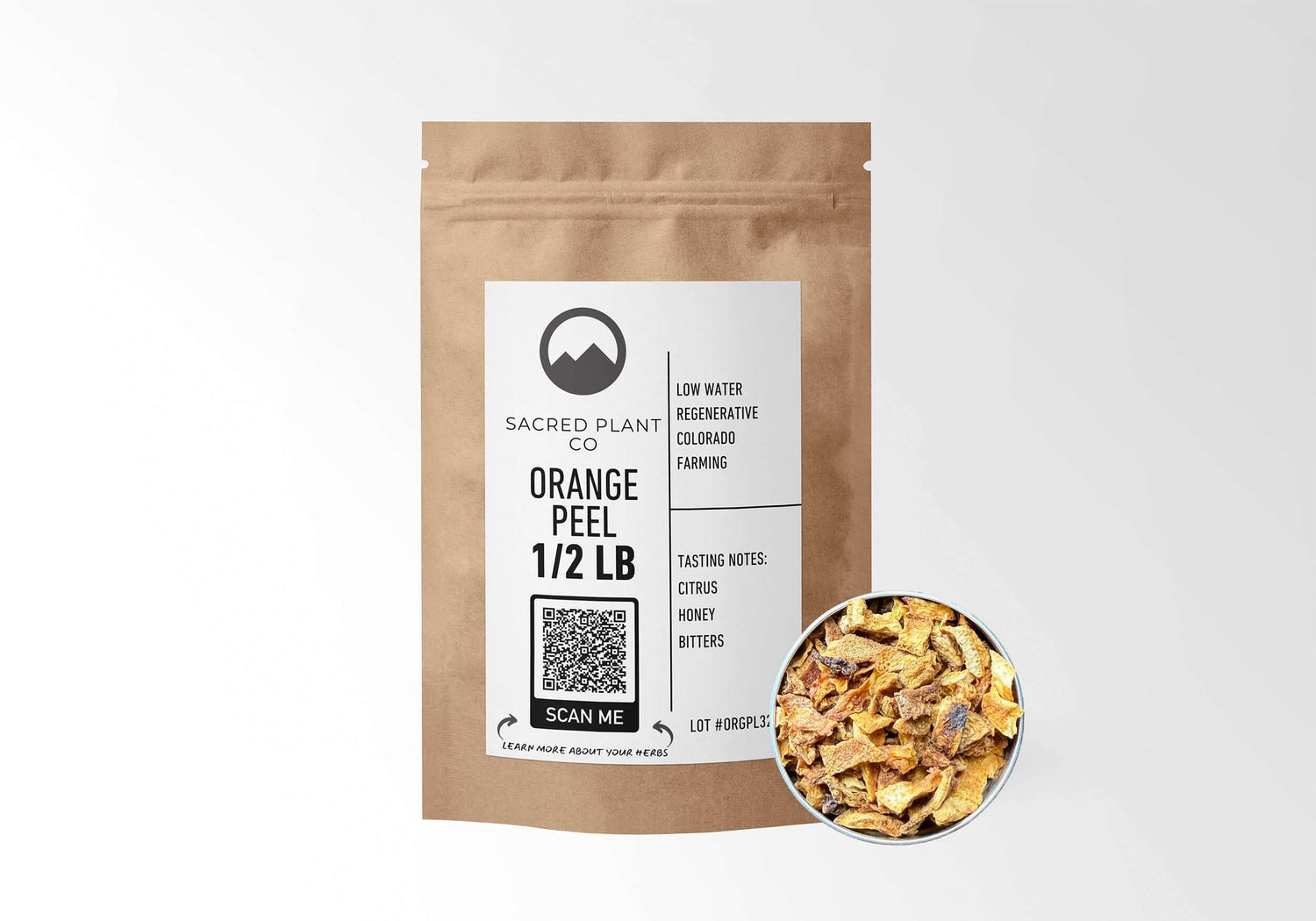
Dried Orange Peel (Chen Pi)
Commonly used to resolve phlegm and regulate Qi, Chen Pi is particularly helpful for phlegm caused by Spleen and Stomach dysfunction. This warming herb dries dampness, disperses phlegm from the Lungs and Middle Burner, and directs rebellious Qi downward. The longer Chen Pi ages, the more potent its medicinal properties become.
Starting at $9.20
Shop Orange Peel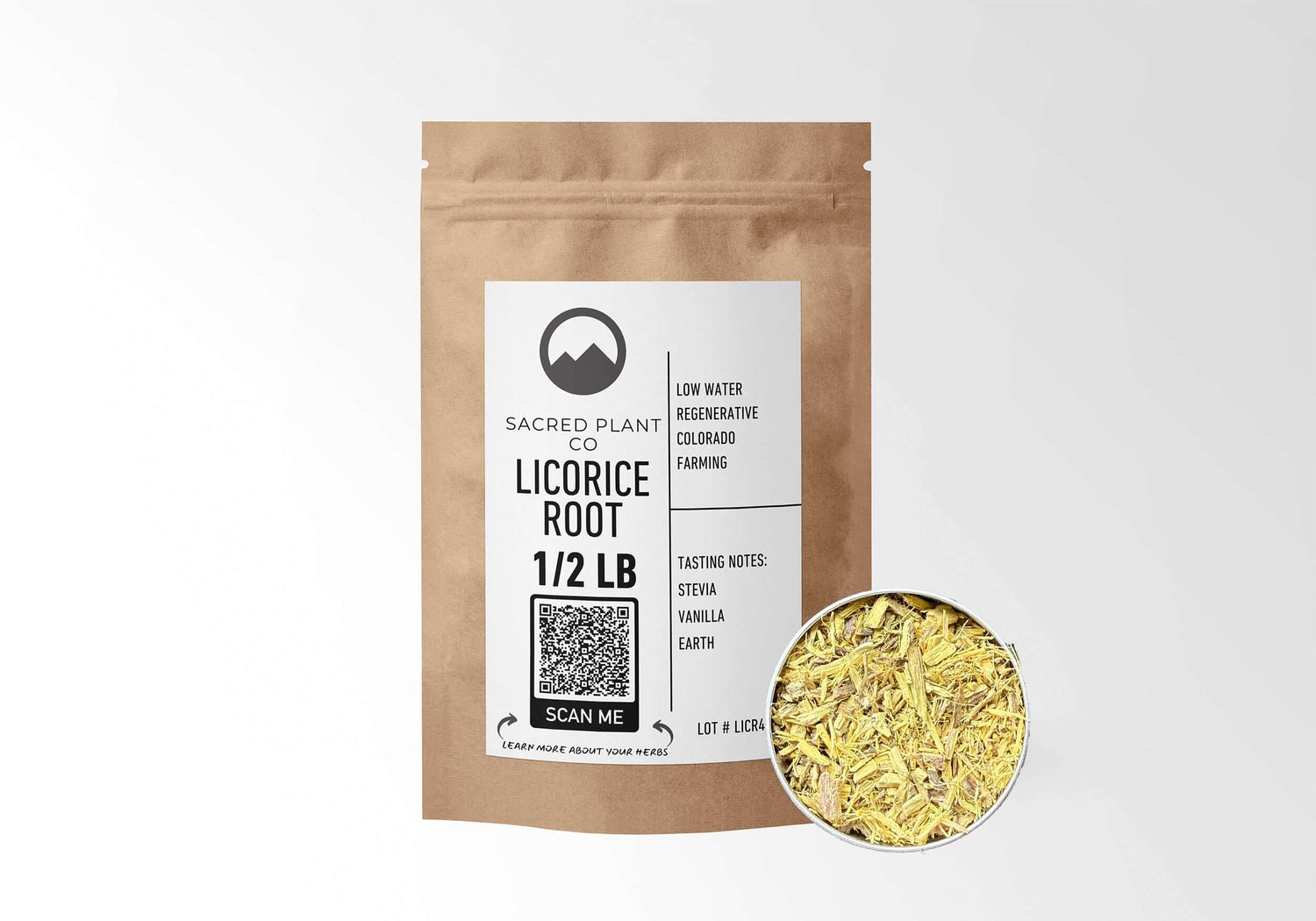
Licorice Root (Gan Cao)
Often used as a harmonizer in herbal formulas, Licorice Root moderates harsh properties of other herbs while supporting Spleen health. It helps coordinate the actions of multiple herbs in a formula and prevents potential side effects from more aggressive ingredients.
Starting at $12.95
Shop Licorice Root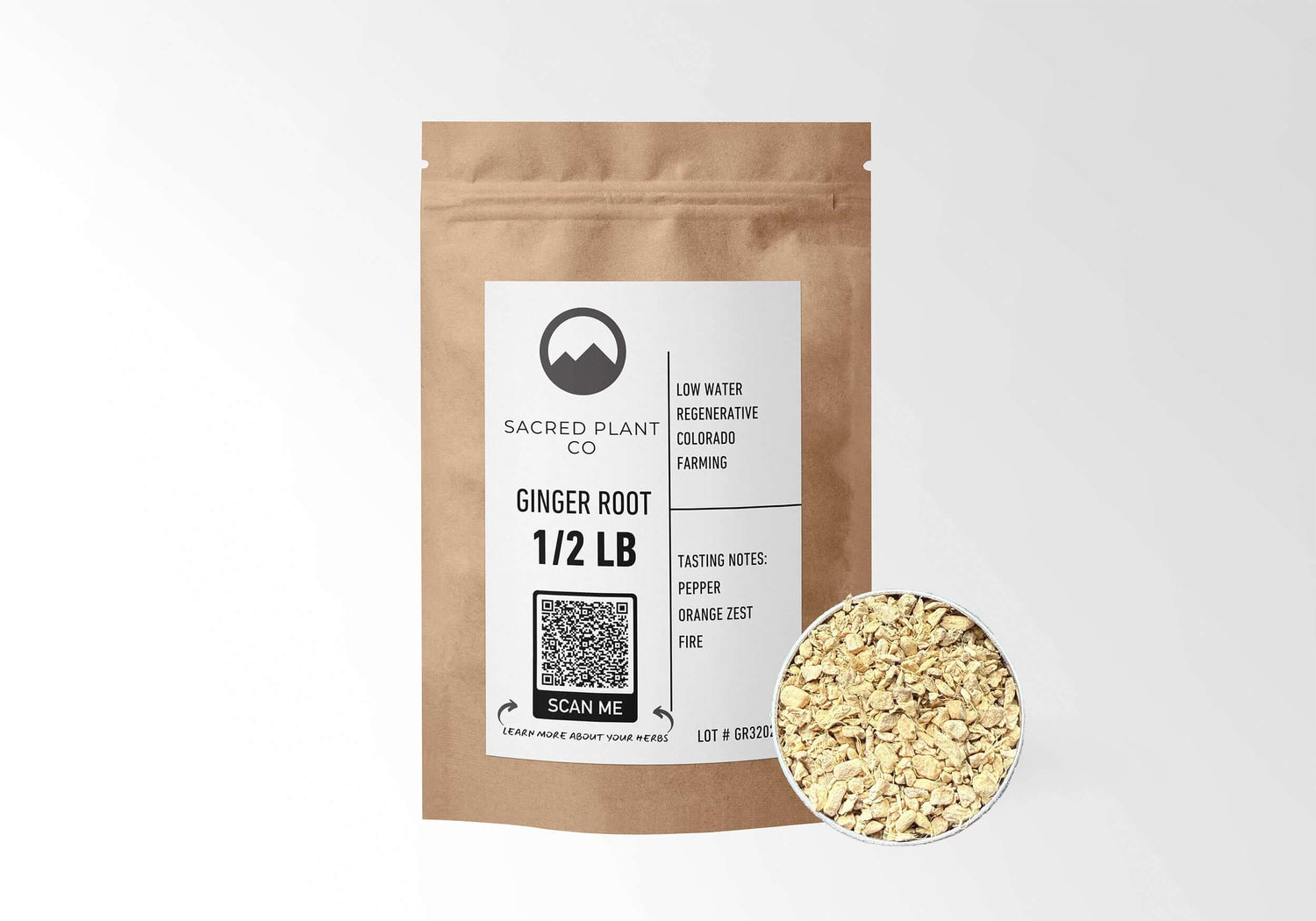
Ginger Root (Sheng Jiang)
Ginger is frequently used in TCM to expel cold and transform phlegm, making it especially useful in cases where phlegm is combined with a feeling of coldness. Its warming and drying nature helps resolve cold-phlegm patterns and supports digestive function.
Starting at $10.98
Shop Ginger RootHow Herbs Work Together
These herbs are often combined in specific formulas tailored to individual constitution and symptoms. The goal is to dry dampness, regulate Qi, and support the body's natural ability to eliminate phlegm. Traditional formulas like Er Chen Tang (Two-Cured Decoction) and Liu Jun Zi Tang (Six Gentlemen Decoction) exemplify how multiple herbs work synergistically to address phlegm conditions.
Acupuncture for Phlegm Transformation
Acupuncture helps clear phlegm from the meridians and organs by stimulating specific points on the body, restoring balance and improving overall health. Common acupuncture points for treating phlegm include:
ST40 (Fenglong): Known as the "Empirical Point for Phlegm," this point on the Stomach meridian helps transform phlegm and dampness throughout the body, particularly in the Lungs and Stomach.
LU5 (Chize): This point on the Lung meridian is particularly effective for clearing phlegm-heat from the Lungs and alleviating coughing and wheezing.
Regular acupuncture sessions, combined with herbal therapy, can significantly reduce phlegm and its associated symptoms.
Dietary Wisdom for Managing Phlegm
Diet plays a crucial role in both preventing and treating phlegm in TCM. The foods we choose either support or undermine the Spleen's transformative abilities.
Foods to Avoid
To prevent phlegm formation, steer clear of foods that contribute to dampness and stagnation:
- Dairy products: Milk, cheese, yogurt, and ice cream are highly phlegm-producing
- Fried and greasy foods: These burden the Spleen and create internal dampness
- Cold and raw foods: These foods require extra energy to digest and can damage Spleen Yang
- Excessive sweets: Sugar and refined carbohydrates impair Spleen function
- Processed foods: These lack nutritional essence and create food stagnation
Foods to Embrace
Focus on warming, easily digestible foods that support Spleen function:
- Cooked vegetables: Warm, cooked vegetables like sweet potatoes, carrots, squash, and spinach nourish the Spleen and prevent dampness buildup
- Warming spices: Ginger and garlic promote digestion and transform phlegm, especially in cases of cold-phlegm
- Whole grains: Brown rice, quinoa, and oats are easier to digest and support the Spleen's transformative function
- Herbal teas: Teas made from Astragalus, Ginger, or Orange Peel support the body's defenses against phlegm
- Lean proteins: Well-cooked chicken, fish, and legumes provide nourishment without creating dampness
How to Eat for Spleen Health
Not just what you eat, but how you eat matters in TCM:
- Chew thoroughly: Well-chewed food lessens the work for your digestive organs and increases efficient nutrient extraction
- Eat mindfully: Avoid working, watching TV, or reading while eating. Allow your digestive system to function optimally
- Stop before fullness: Eat to about 80% capacity to prevent food stagnation and Spleen overwhelm
- Choose warm over cold: Room temperature or warm foods require less digestive energy than cold foods and beverages
Lifestyle Strategies for Preventing Phlegm
Lifestyle choices significantly impact phlegm accumulation. At Sacred Plant Co, we emphasize prevention through balanced daily practices.

Regular Physical Activity
Engaging in moderate physical activity helps move Qi and Blood, preventing stagnation and the buildup of dampness. Practices particularly beneficial include:
- Tai Chi: This gentle, flowing movement practice promotes Qi circulation and strengthens the body without creating strain
- Qi Gong: Specific Qi Gong exercises can directly address Spleen function and dampness transformation
- Walking: Regular walking, especially in nature, supports healthy digestion and prevents stagnation
- Yoga: Certain yoga poses support digestive health and help transform dampness
Stress Management and Emotional Balance
Practices like meditation, Tai Chi, or Qi Gong help maintain emotional balance, which is crucial for preventing Spleen Qi deficiency and subsequent phlegm formation. Chronic worry and anxiety directly weaken the Spleen, so addressing emotional health is essential for phlegm prevention.
Environmental Awareness
Your living environment affects your internal environment:
- Ensure proper ventilation: Keep living and working spaces well-ventilated and dry
- Address dampness: Use dehumidifiers in damp climates or seasons
- Avoid damp exposure: Change out of wet clothes promptly and avoid sitting on damp surfaces
- Create warmth: Keep your abdomen and lower back warm, as these areas house the Spleen and Kidneys
When to Seek Professional Guidance
While the information we share provides valuable insights into TCM approaches to phlegm, working with a licensed TCM practitioner ensures proper diagnosis and treatment tailored to your specific constitution and symptoms. A practitioner can:
- Accurately diagnose your specific pattern of disharmony
- Create customized herbal formulas for your unique needs
- Provide acupuncture treatments targeting your specific concerns
- Monitor your progress and adjust treatments accordingly
- Integrate TCM approaches with any Western medical care you receive
Safety and Professional Guidance
While these herbs have been used traditionally for managing phlegm and supporting Spleen function, use them under the guidance of a qualified TCM practitioner and in consultation with a healthcare provider, especially if you are pregnant, nursing, taking medications, or have underlying health conditions.
Specific Precautions:
- Astragalus: May stimulate the immune system and should be avoided during active infections or by those with autoimmune conditions
- Licorice Root: Can affect blood pressure and potassium levels; avoid with hypertension or heart conditions
- Ginger: Use caution if taking blood thinners or have bleeding disorders
- Orange Peel: Avoid in cases of Yin deficiency with dry cough or coughing blood
Disclaimer: This article is for informational purposes only and is not intended as a substitute for professional medical advice. Always consult a healthcare professional for any medical concerns.
Conclusion: A Holistic Path to Wellness
In Traditional Chinese Medicine, phlegm is a complex and multifaceted concept that extends beyond the respiratory system. It manifests as a deeper imbalance within the body, often linked to Spleen dysfunction and the accumulation of dampness. Understanding the causes, manifestations, and treatments of phlegm allows for a holistic approach to restoring health and balance.
At Sacred Plant Co, we provide the highest quality TCM herbs to support your wellness journey. By combining time-honored herbal wisdom with dietary adjustments, mindful lifestyle practices, and professional guidance, you can address phlegm at its root and cultivate lasting health.
The path to wellness is not about quick fixes but about understanding your body's signals and supporting its natural ability to heal and maintain balance. Whether you're dealing with visible phlegm symptoms or the more subtle effects of invisible phlegm, TCM offers a comprehensive framework for restoration and prevention.


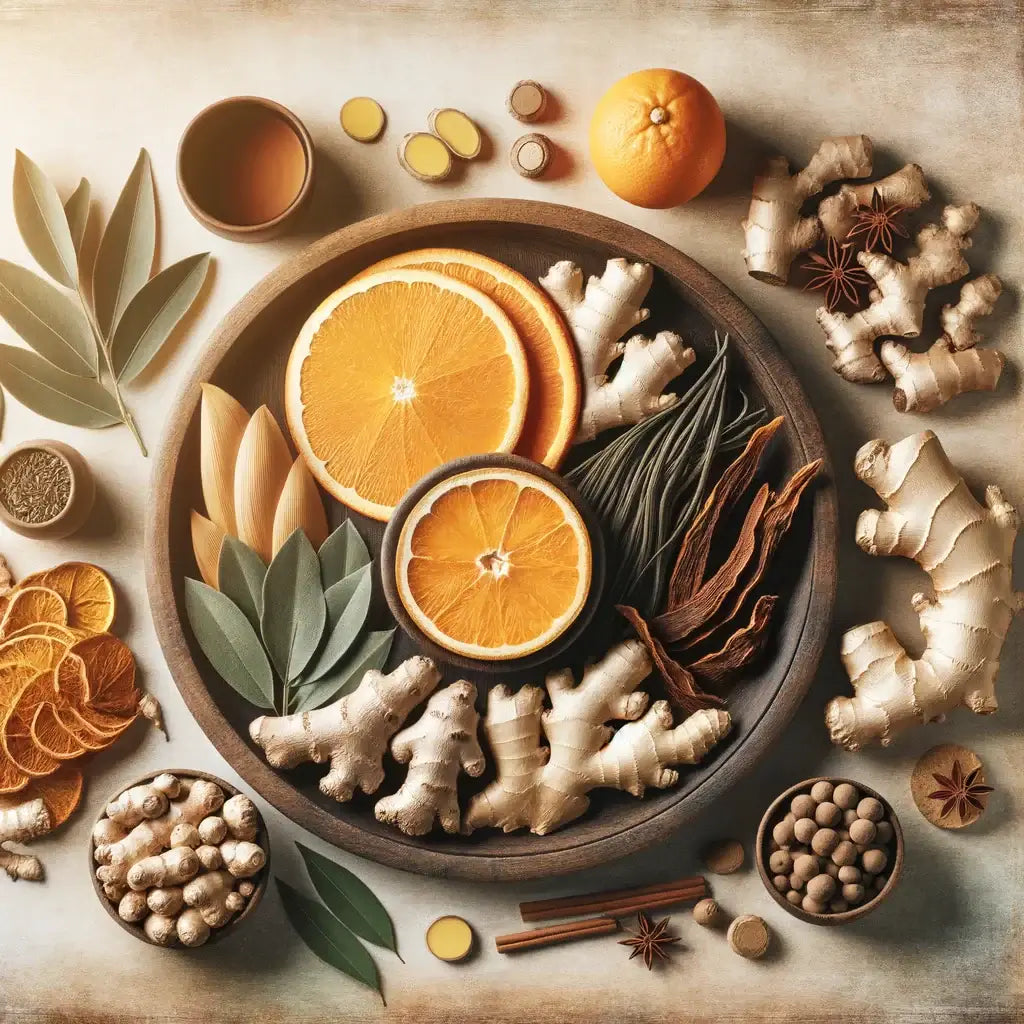

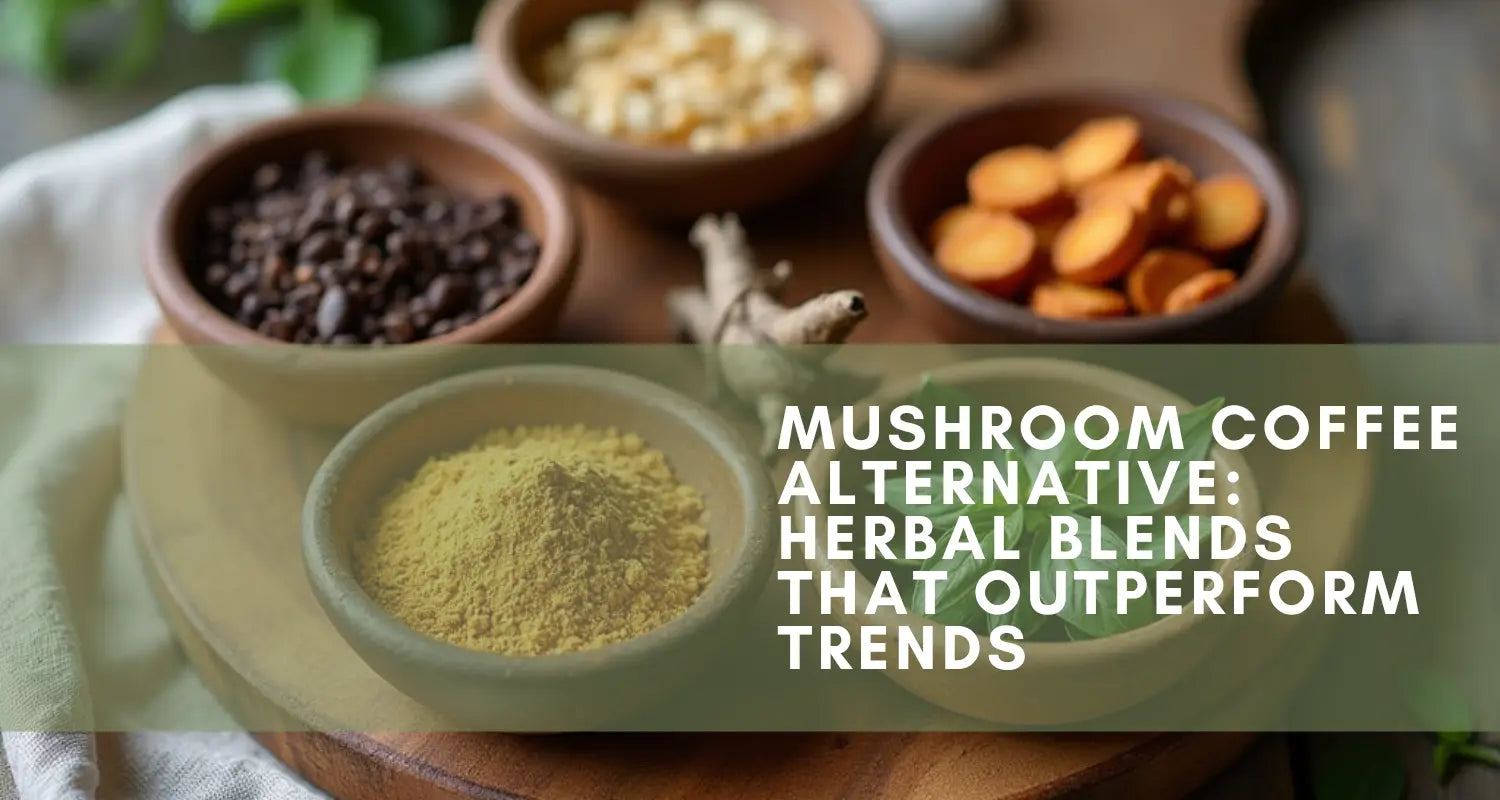
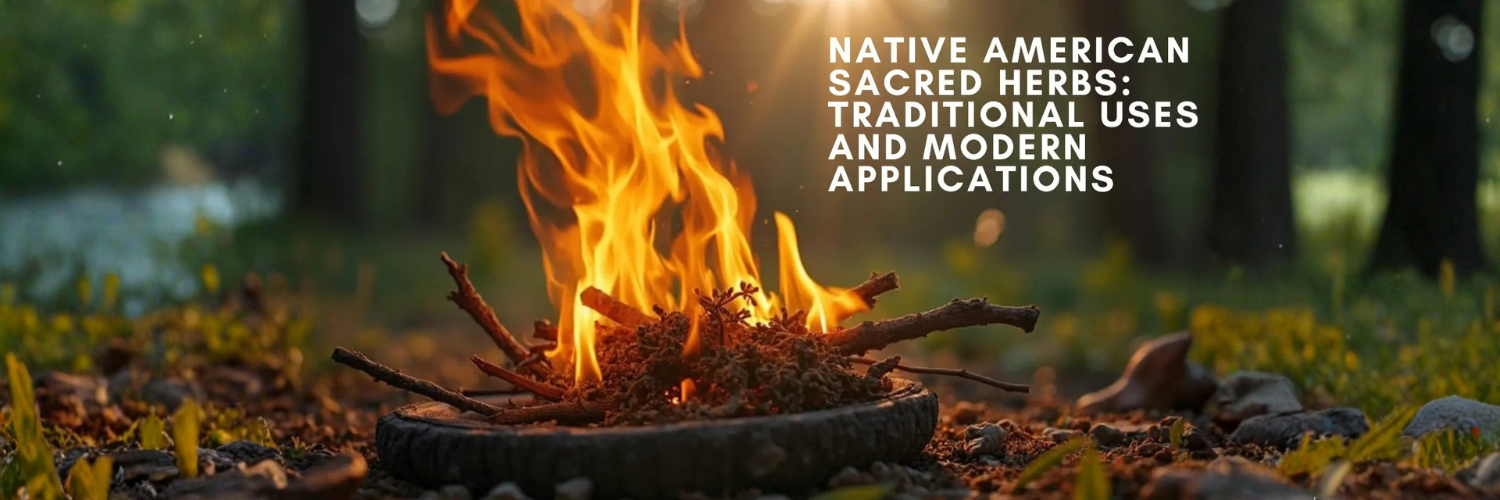
1 comment
I am so glad your website came up close to the top. Geeze all I was getting was medication and allergy guidance